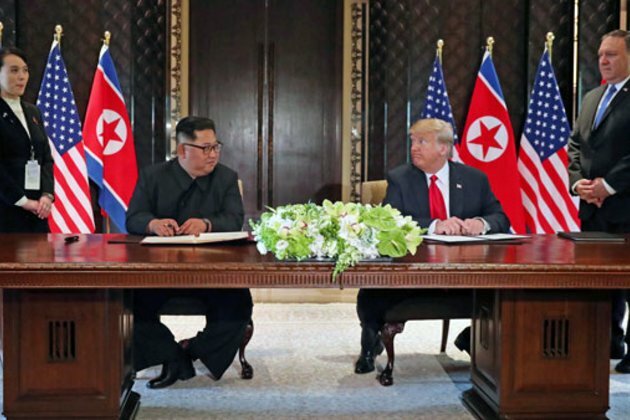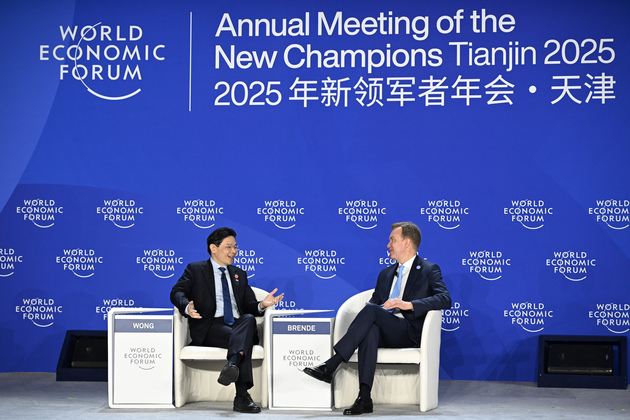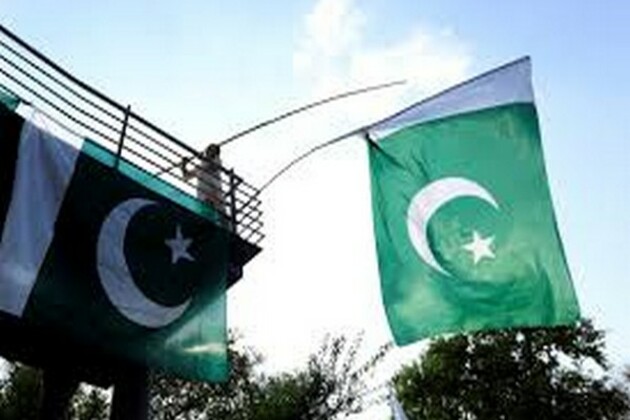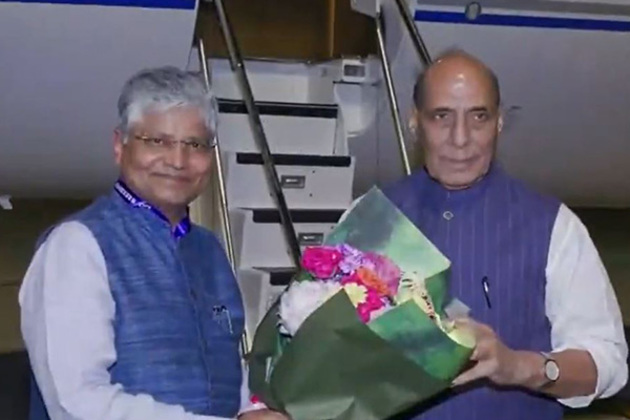China Looms Large Behind North Korea-US Summit: Analysts
RFA
12 Jun 2018, 22:12 GMT+10

China on Tuesday called for an easing of sanctions against North Korea in the wake of a summit between U.S. President Donald Trump and North Korean leader Kim Jong Un that resulted in a broad-brush statement on denuclearization.
Analysts meanwhile said China's presence was very clearly felt at the summit as North Korea's closest ally, and that Kim's negotiating strategy had likely been hammered out with Beijing's blessing.
Chinese foreign minister Wang Yi said China hoped for a peace deal between the isolated Stalinist state and Washington.
"We hope that the two countries' highest leaders can dispel interference, establish mutual trust, overcome difficulties, and reach a basic consensus on promoting and achieving the denuclearization of the peninsula and promoting and establishing a peace mechanism for the peninsula," Wang told reporters.
He said China views the Korean Peninsula nuclear issue as a security issue, and would welcome a peace agreement, adding: "I think nobody can doubt the extremely unique and important role China has played. And this role will continue."
Hong Kong journalist and political commentator Lawrence Ho said Kim had paid two visits to China earlier this year, and its negotiating stance had only emerged after secret talks with President Xi Jinping.
"Following those secret talks, Kim Jong Un put forward his key demands for the summit with Trump, which included separating the agreement into phases with certain benefits at each stage from the United States and South Korea," Ho said. "These principles were only firmed up after the meeting between Kim and Xi in Dalian."
He said China had also allowed Kim to fly from Pyongyang to Singapore on an Air China aircraft, sending a very public message about its involvement.
"Some Hong Kong media were saying that actually Xi Jinping is in the background of all of this, because Kim became more emboldened after his meeting with Xi," Ho said.
"So, while the positions of Beijing and Pyongyang aren't entirely the same, we know that China would definitely be happy to see the denuclearization of the Korean peninsula ... because that would be in Beijing's interests," he said.
Stalemate situation
Xia Ming, a political science professor at the City University of New York, said there are also political risks to China from a growing rapprochement between North Korea and the U.S. and its allies, however.
"I think up until now, China has benefited from the stalemate situation," Xia said. "From its point of view it doesn't really want to see a result from bilateral talks [between the U.S. and North Korea]."
But he said China didn't want talks to collapse, either.
"The worst case scenario would be the total collapse of negotiations, which would bring untold tensions, possibly even war, to the Korean peninsula," Xia said.
"Neither does the Chinese government want to see a best-case scenario in which the U.S., Japan, and South Korea start to give economic rewards for North Korea's agreement to a denuclearization program, which could send North Korea in a more liberal direction without dealing with the issue of U.S. troops on the Korean peninsula," he said.
Xia said a more liberal and pluralistic North Korea would likely eventually result in the reunification of the two Koreas, too.
"China doesn't want that to happen," he said. "I think from China's point of view, its best-case scenario would be that the Singapore communique was just a piece of paper, there for show, and yielding nothing of substance," he said.
Ho agreed that China doesn't want tensions to go back to previous levels.
"I don't think China wants to see a sudden breakdown in bilateral talks between North Korea and the U.S., which would bring us back to square one," he said.
"But even if that happens, Kim Jong Un has now repaired the bilateral relationship with China, and now he enjoys behind-the-scenes support from two major heads of state, Xi Jinping and [Russian President Vladimir] Putin."
Official peace treaty
Sources have indicated that there is some uncertainty over which parties would sign any official peace treaty ending the Korean War (1950-1953), a pledge made by Kim and his South Korean counterpart Moon Jae-in at their historic meeting at the 38th Parallel in April.
The armistice agreement was signed by the United Nations, which represented the U.S. and numerous allies, North Korea's Korean People's Army, and the Chinese People's Volunteer Army.
While Xia said Beijing likely fears being sidelined in any new peace process, Ho said the signatories to any peace treaty would likely include the original parties to the armistice.
"The armistice was signed by the U.N., the KPA, and the PVA; the South Koreans refused to take part," Ho said. "So China is now saying that any peace treaty would involve either three or four parties. A three-party treaty would involve China, North Korea and the U.S., while a four-party treaty would [include] South Korea."
Xia said, however, that the status of the PVA was in doubt, as it was a voluntary force sent by the Chinese Communist Party to help the war effort, rather than a formal army of a sovereign state.
Reported by Lin Ping and Gao Feng for RFA's Mandarin Service, and by Wen Yuqing for the Cantonese Service. Translated and edited by Luisetta Mudie.
Copyright © 1998-2018, RFA. Published with the permission of Radio Free Asia, 2025 M St. NW, Suite 300, Washington DC 20036
 Share
Share
 Tweet
Tweet
 Share
Share
 Flip
Flip
 Email
Email
Watch latest videos
Subscribe and Follow
Get a daily dose of Malaysia Sun news through our daily email, its complimentary and keeps you fully up to date with world and business news as well.
News RELEASES
Publish news of your business, community or sports group, personnel appointments, major event and more by submitting a news release to Malaysia Sun.
More InformationSoutheast Asia
SectionLeaked call pushes Thai govt to the brink as allies waver
BANGKOK, Thailand: Thailand's government is facing its biggest crisis in nearly a year, as Prime Minister Paetongtarn Shinawatra's...
BANGLADESH-DHAKA-MUSLIN FABRIC
(250625) -- DHAKA, June 25, 2025 (Xinhua) -- A weaver works at a muslin workshop in Dhaka, Bangladesh, on May 24, 2025. Bangladesh...
BRUNEI-BANDAR SERI BEGAWAN-CFTE-OPEN
(250625) -- BANDAR SERI BEGAWAN, June 25, 2025 (Xinhua) -- People are seen at the 31st Consumer Fair & Trade Expo (CFTE) of Brunei...
CHINA-TIANJIN-SUMMER DAVOS (CN)
(250625) -- TIANJIN, June 25, 2025 (Xinhua) -- Singaporean Prime Minister Lawrence Wong (L) and World Economic Forum President Borge...
Baloch leader warns of ISIS threat, accuses Pakistan of supporting militant group
Balochistan [Pakistan] June 25 (ANI): Baloch nationalist figure Mir Abdul Nabi Bangulzai has released an audio statement urging the...
Defence Minister Rajnath Singh arrives in China for SCO meet
Beijing [China], June 25 (ANI): Defence Minister Rajnath Singh on Wednesday arrived in Qingdao, China, to participate in the Shanghai...
Business
SectionToyota hikes US auto prices, says move is not tariff-driven
PLANO, Texas: Toyota Motor will raise prices across a range of vehicles in the United States starting next month, the Japanese automaker...
Tariffs, inflation raise stagflation risk as Fed eyes next move
WASHINGTON, D.C.: U.S. business activity showed signs of softening in June while inflationary pressures continued to build, driven...
U.S. stocks extend rally as Israel and Iran make peace
NEW YORK, New York - U.S. stock markest closed sharply higher on Tuesday as a truce entered into between Irsael and Iran after 12 days...
Meta unveils Oakley AI glasses as next step in wearable tech push
MENLO PARK, California: Meta is taking another swing at smart eyewear—this time with a sporty edge. The company announced a new partnership...
Markets rally on hopes Iran won’t disrupt oil flow
NEW YORK CITY, New York: U.S. stocks went up and oil prices fell this week as investors hoped that Iran would not block the global...
Water guns become symbol of anti-tourism anger in Barcelona
BARCELONA, Spain: Residents of Barcelona have devised a novel way to protest the presence of tourists in their city. Using a cheap...













